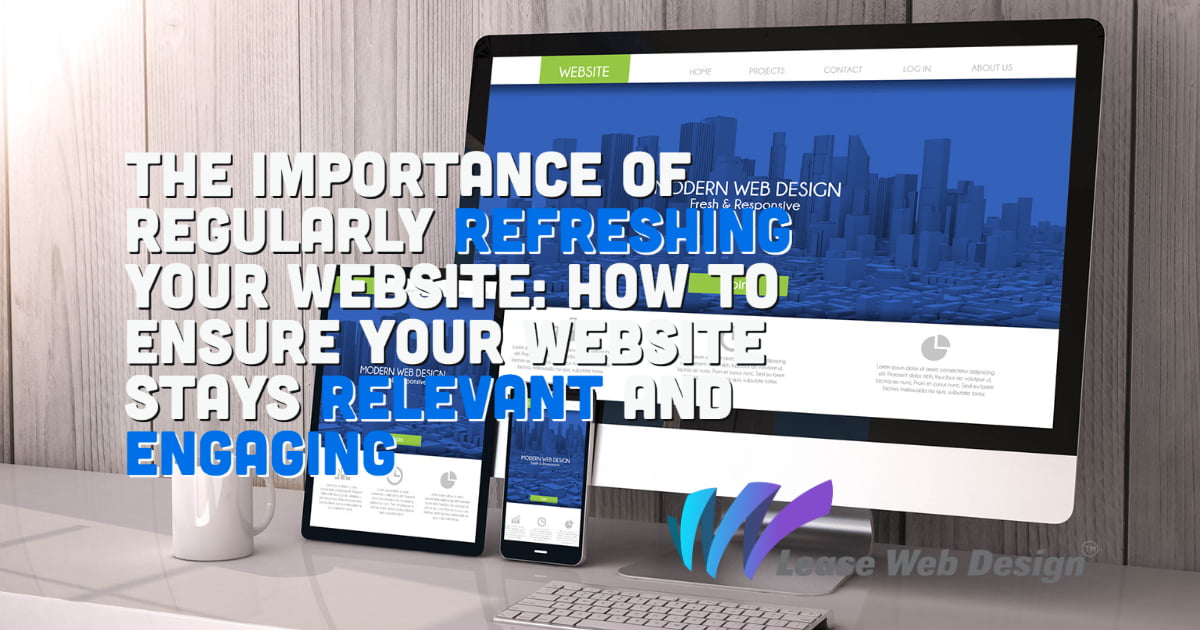In today’s digital age, having a website is essential for any business or organization.
A website serves as an online storefront, providing information and resources to potential customers and clients.
However, a website that is not regularly refreshed can become stale and irrelevant, leading to a loss of traffic and engagement.
In this article, we will discuss the importance of regularly refreshing your website and provide tips on how to ensure your website stays relevant and engaging for your audience.
From updating the content, design, and security to tracking the performance and understanding the audience, we will cover all the key aspects to refresh your website.
The frequency of refreshing a website depends on several factors, including the type of website, the industry, and the goals of the business. Here are some general guidelines for how often a website should be refreshed:
- Content-based websites: Websites that rely on fresh content, such as news websites or blogs, should be refreshed regularly, ideally daily or at least weekly. This helps to keep the content fresh and engaging for visitors.
- E-commerce websites: Websites that sell products or services should be refreshed regularly to reflect changes in inventory or pricing. Additionally, they should be refreshed to reflect new trends in the industry or new features that may be beneficial to the customer. It’s recommended to refresh these websites at least every six months.
- Static websites: Websites that are not content-based and do not change frequently, such as brochure websites or portfolios, can be refreshed less frequently. It’s recommended to refresh these websites every 1-2 years.
- Website Performance: Websites that have poor performance or load time, or that are not mobile-friendly should be refreshed as soon as possible. This will help to ensure that the website is fast and easy to use for visitors.
- Website Security: Websites should be regularly updated to ensure they are secure from hackers or malicious attacks. Software updates, security patches, and plugin updates should be applied as soon as they are available.
- Online directories: Websites that list businesses or services, such as online directories, should be refreshed regularly to ensure that the information is accurate and up-to-date. It’s recommended to refresh these websites at least every six months.
- Event websites: Websites for events, such as conferences or festivals, should be refreshed often to reflect the latest schedule or speaker information. It’s recommended to refresh these websites at least every month leading up to the event and then archived after the event.
- Government websites: Websites for government agencies should be refreshed regularly to ensure that the information is accurate and up-to-date. It’s recommended to refresh these websites at least every six months.
- Educational websites: Websites for educational institutions, such as universities or schools, should be refreshed regularly to reflect changes in course offerings, faculty information, and other important information. It’s recommended to refresh these websites at least every semester.
- Non-Profit websites: Websites for non-profit organizations should be refreshed regularly to reflect changes in volunteer opportunities, donation campaigns, or upcoming events. It’s recommended to refresh these websites at least every quarter.
- Personal Websites: Personal websites should be refreshed according to the purpose of the website and the goals of the website owner, if the website is used to showcase the portfolio of a freelancer, it should be updated regularly with new projects and skills, if it’s a personal blog it should be updated regularly with new posts.
The frequency of refreshing a website depends on the type of website, the industry, and the goals of the business or website owner. Different types of websites have different needs, as well as different audiences, and it’s important to refresh them according to their specific requirements.
A stale and irrelevant website can lead to a loss of trafficIn conclusion
In conclusion, regularly refreshing a website is essential for any business or organization. A stale and irrelevant website can lead to a loss of traffic and engagement, making it difficult for a business to achieve its goals. By updating the content, design, and security, tracking the performance, and understanding the audience, a website can stay relevant and engaging for its audience.
Hiring a professional web designer can be a wise investment for a number of reasons. Aa web designer has the knowledge and experience to ensure that a website is fully optimized for its intended audience and is easy to use. They can also ensure that the website is optimized for search engines and is mobile-friendly. They can also make sure that the website is secure and is regularly updated to keep up with the latest trends and technologies.
A web designer can also help a business to stay on top of the ever-changing web landscape. The way websites are designed and how search engines rank them is constantly changing, and a web designer will be able to keep a website up to date with the latest best practices and algorithms. This can help a business to maintain or improve its visibility and credibility online.
In summary, hiring a professional web designer is important to help manage a website and ensure that it stays relevant and engaging for its intended audience. A web designer can help to optimize a website for its intended audience, search engines, and mobile devices, as well as to stay on top of the ever-changing web landscape. Investing in a professional web designer can be a wise investment that can help a business to achieve its goals and succeed in today’s digital age.


